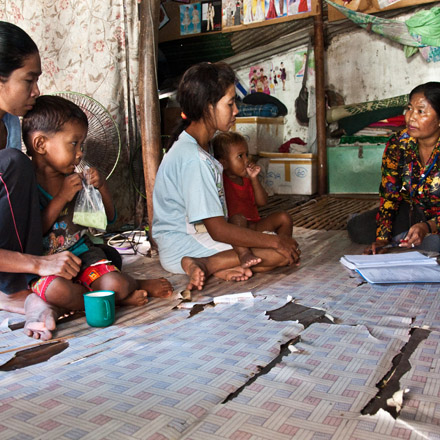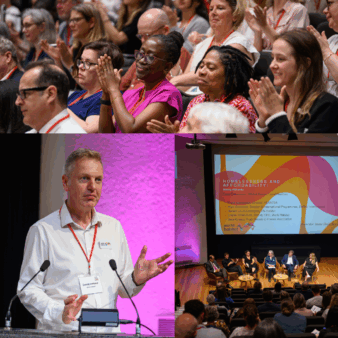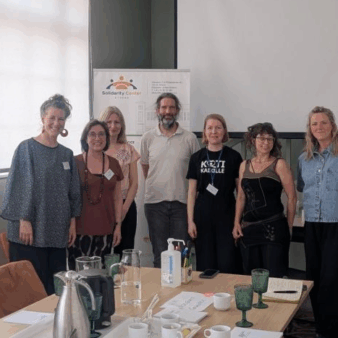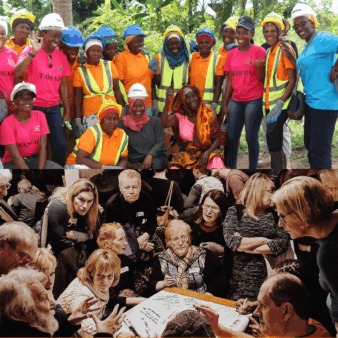
A project which improves the safety and living conditions of residents’ homes in informal settlements, while delivering family support and training – including on preventing domestic violence – has today been named a Bronze Award Winner in this year’s World Habitat Awards.
Habitat and living conditions improvement in poor communities in Phnom Penh works with local partners, NGOs and local authorities in eight large informal settlements, home to around 10,000 people. Priority is given to vulnerable families living in particularly unsafe housing, with a strong focus on women who are experiencing, or at risk of, domestic violence.
Co-ordinated by the NGO Planète Enfants & Développment (PE&D) in 2018, the project builds on previous work with local partner Samatapheap Khnom Organization (SKO). To date, 88 homes have been improved to become structurally safe, 206 families have received social support – including domestic violence-related – and hundreds of people have been trained in sustainable construction techniques and the PASSA approach (a participatory method of disaster risk reduction related to shelter safety). In addition, training has been provided in financial education and gender issues, savings and credit groups, and family support – with a strong focus on the inclusion and independence of women.
Resident Mr. Chin Sao, aged 51, is a construction worker who lives in Daeum Chan village. He said: “When PE&D raised awareness about their project, I decided to join to improve my family’s conditions. I had experience in construction and I attended construction technical training with PE&D. So I rebuilt the house myself and now it is safe. I no longer have to worry about the roof leaking or collapsing when it rains. I was afraid that my house, on the riverbank, could be taken out by the water when the river level rises. Thanks to the renovation, my family improved both their livelihood and living conditions.
“Through my participation with the project I learned about hygiene, house maintenance, and the importance of sending children to school. I also learned about financial management, which helped me to improve my livelihood. There were many positive changes now thanks to the project – such as better hygiene in the village, my house is better and safe, and I can look after my family better.”
David Ireland, Chief Executive of World Habitat, said: “Rural to urban migration is the biggest change in many countries’ populations in recent years. Internal migrants are often the most vulnerable people, with little wealth and few possessions. They find themselves living on the most marginal and insecure land. They are at greater risk to disasters, crime, intolerable living conditions and are most likely to be evicted. This project addresses these issues through training and better security so they are at less risk of violence, which allows them to build their lives more sustainably and safely.”
The World Habitat Awards judging panel said: “This project brings a fresh perspective to dealing with the immediate social need of personal safety, and structural security of precarious homes. The low-scale investment allows for a more flexible solution for vulnerable households.”
Each year the World Habitat Awards are presented to the most outstanding and innovative housing projects from across the world.




Join the discussion